Bulgarian expatriates in Spain havemanaged with their own resources and efforts to open four schools in the northern part of the country /mainly in the region of Navarra/, so that their children could learn their mother tongue and preserve their roots. Sabi Atipov from the village of Kochan near Satovcha is at the heart of the initiative. He has been living in Spain for 20 years and has been chairman of the Orpheus BG Association for a long time.
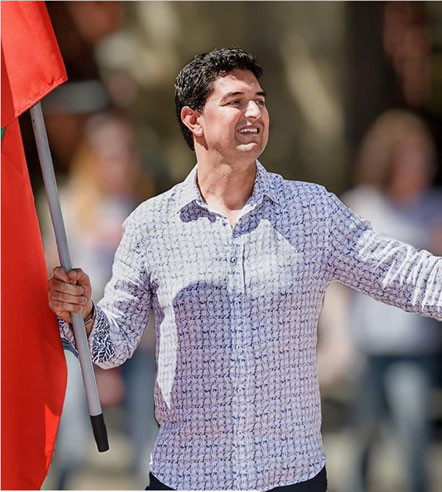 “The Orpheus BG Association was established back in 2007 with the aim of supporting the Bulgarian community in the Spanish city of Pamplona, Navarra,” he says. “In addition to the Sunday Bulgarian schools, we have also been involved in cultural activities - we have folk groups, as well as a football team. Also, we often visit local holidays and represent Bulgaria with our folk songs and dances, with our crafts and typical products. This activity has made us more united because we had the same needs; we faced the same problems and obstacles. And we have started overcoming them together, which has made life easier for all of us.”
“The Orpheus BG Association was established back in 2007 with the aim of supporting the Bulgarian community in the Spanish city of Pamplona, Navarra,” he says. “In addition to the Sunday Bulgarian schools, we have also been involved in cultural activities - we have folk groups, as well as a football team. Also, we often visit local holidays and represent Bulgaria with our folk songs and dances, with our crafts and typical products. This activity has made us more united because we had the same needs; we faced the same problems and obstacles. And we have started overcoming them together, which has made life easier for all of us.”
The Sunday schools, opened with the efforts of 7,000 Bulgarians in the region and supported by the Bulgarian Ministry of Education and Science, are located in Pamplona, Tafalla, Vitoria-Gasteiz and Tudela. Every weekend, over four hundred emigrant children study Bulgarian language and literature, as well as history and geography with the help of professional Bulgarian teachers – who had also emigrated in search of a better life.
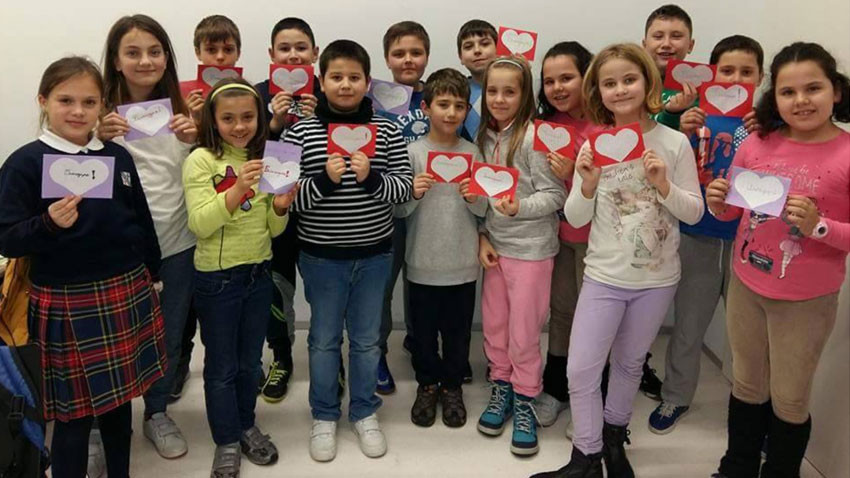
“Bulgarian families have a big problem as their children spend all day at the Spanish school and only several hours a day with their parents,” the chairman of Orpheus BG says. “That is why Bulgarian language for these children is becoming a second and even a third language, since children study English or other foreign languages extensively at school. Only when they get home do the children communicate in Bulgarian with their parents or siblings. For us it was a great goal and a challenge to establish Sunday schools so that children could be in an environment where everyone speaks, reads and writes in Bulgarian.”
Bulgarians learn about this country not only in the classroom, but also through the Bulgarian holidays, celebrated together by the whole community. Recently, they all participated in the first Bulgarian gathering in Pamplona.
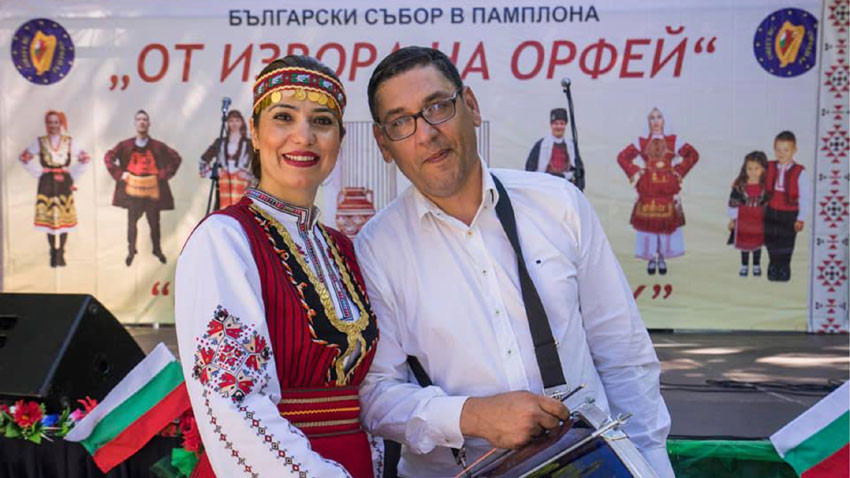
“We started the first Bulgarian fair in Pamplona, because we had not organised events of this scale before,” Sabi Atipov says. “On the eve of the event we were officially welcomed in the City Hall. The next day we presented a show on the streets of the old part of Pamplona with Bulgarian flags, bagpipes and drums, after which some of the participants performed on the stage.
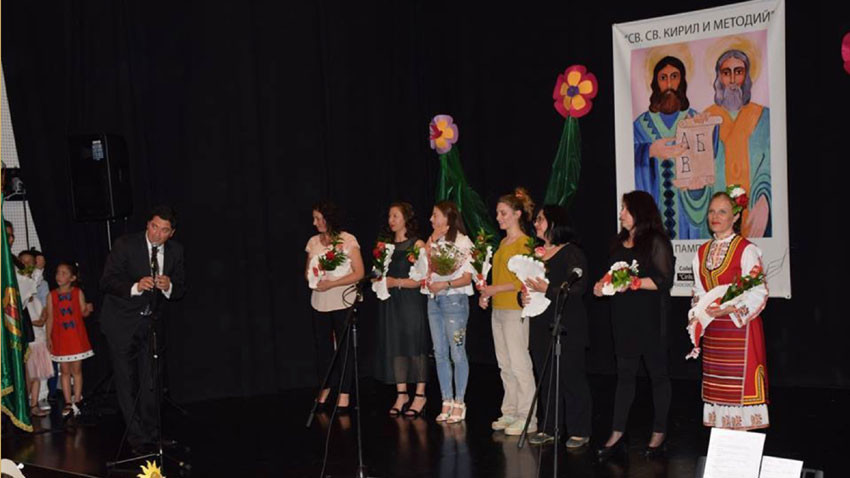
Thus, throughout the day there were performances of Bulgarian folk singers and dance groups in the city. Most of the participants live in Spain, but there were also musicians who came from the Rhodopes, from Gotse Delchev.”
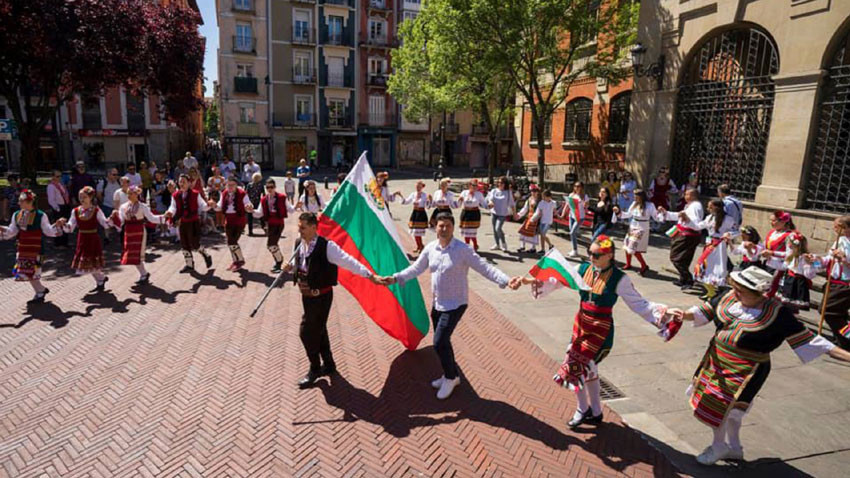
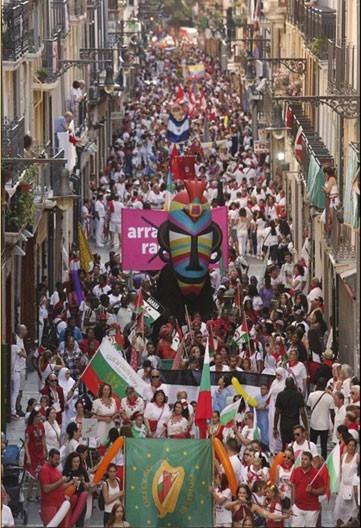 One of the most numerous Bulgarian communities abroad is living and working in Spain. There are Bulgarians occupying positions in the whole social structure of the country – lawyers, engineers, doctors, construction workers, waiters, housekeepers. What could make emigrants return to Bulgaria?
One of the most numerous Bulgarian communities abroad is living and working in Spain. There are Bulgarians occupying positions in the whole social structure of the country – lawyers, engineers, doctors, construction workers, waiters, housekeepers. What could make emigrants return to Bulgaria?
“The most important thing for Bulgarians in Spain is that they have security,” Sabi Atipov says. “With a normal job here, you can afford absolutely everything and have a normal lifestyle. The quality of healthcare is high. You also see what your taxes are spent on. And all this makes you feel satisfied because your money have not gone in vain – they have entered the education and healthcare systems; you can see the new roads, etc. What would make emigrants return is a matter of priority for each individual family. But generally speaking, Bulgaria needs to catch up to the more developed European countries in absolutely all areas. Until then, we the emigrants who are living far from our homeland, would keep carrying Bulgaria in our hearts.”
English: Alexander Markov
Photos: private libraryWith more 40 thousand archaeological sites and artifacts, Bulgaria is a true open-air museum. In terms of the number of finds, this country ranks third in the world after Italy and Greece. From the Neolithic, eight millennia ago, to..
NATO tests new 'no U.S.' mission model in Balkans NATO is testing its ability to deploy rapidly across Eastern Europe - without direct US support - as Washington shifts its approach to European defence and the war in Ukraine, the Associated Press..
Love blooms with renewed vigour every year on 14 February! Valentine's Day is increasingly being celebrated in Bulgaria as a holiday that inspires lovers to share beautiful moments together. Traditions include the exchange of cards, gifts and romantic..
World Radio Day - 13 February, this year is dedicated to climate change. The choice is no coincidence—2025 has been identified by the Paris Agreement as a..
Love blooms with renewed vigour every year on 14 February! Valentine's Day is increasingly being celebrated in Bulgaria as a holiday that inspires lovers to..
From February 14 to 16, an event under the motto "Love and Wine" will allow Sofia residents and guests of the city to combine the..

+359 2 9336 661
